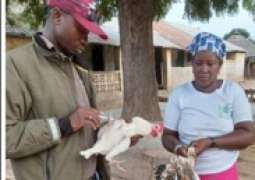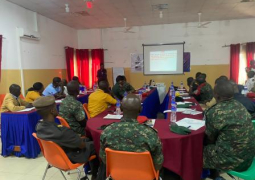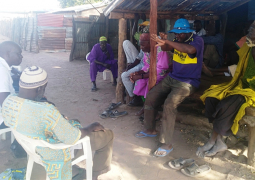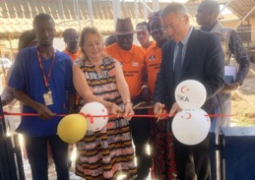The event held at the Sir Dawda Kairaba Jawara International Conference Centre, provides a unique opportunity to present feedback on the findings of the recent project on the Tahfidh conducted in May and August 2022.
Similarly, study tours in Senegal were held to solicit views and inputs for structure, organisation and curriculum that incorporate language skills, science, technology, engineering and others.
Alhagie Essa Darboe, Secretary General of the General Secretariat for Islamic/Arabic Education in The Gambia (AMAANAH), explained that Tahfidhs are the most needed sector that needs the government’s intervention and donors working in the educational field.
He added that according to AMAANAH statistics, they have over 700 centres registered with a population of 26,000 children.
“The children enrolled to memorise the Quran represents about 3.5% of the school-going age in The Gambia. It is a big population and we need to help them to have quality education in this sector. In terms of memorisation, they are doing well because the Gambia participated in international competitions and in many cases; our children always emerge on top.”
Darboe recalled some of the gains made by the country in the global stage, saying the country scored first last year in a competition that involved African countries.
“The Gambia also came out third position in an international competition in Saudi Arabia.”
Deputising for the Secretary General and Head of Civil Service, Abdoulie Jarra, Permanent Secretary at the Office of the President, said Tahfidhs recently emerged independently as a new form of Quranic teaching and learning, resulting in public demand.
The intervention of the Office of the President, he added, was triggered by a series of fire outbreaks in most of the centres, particularly the recent one that occurred on 17 October 2021, claiming the lives of many people.
“Following an investigation into the matter, a task force was sanctioned at the Office of the President to assess the conditions of all boarding schools as to whether they complied with the standards, appropriate infrastructure, and adequate safety precautions to evade a reoccurrence of such incidents,” he said.
The taskforce, he added, also investigated ways to restructure the Tahfidh in providing not only Quranic memorisation, but quality and basic education.
This, he further added, implies the government’s support in modernising the facilities and expanding the Tahfidh curriculum which includes other languages and functional skills, science and technology and mathematics.
“The task force visited 136 Tahfidh centres across the country in May and August 2022. The report shows that the visit covered 33% of the centres registered with AMAANAH and there is a high social demand for Quranic education as evident in the significant number of out-of-school children enrolled in these centres,” he stressed while noting that out of 26,027, 21,822 are male and 4,199 are female.





